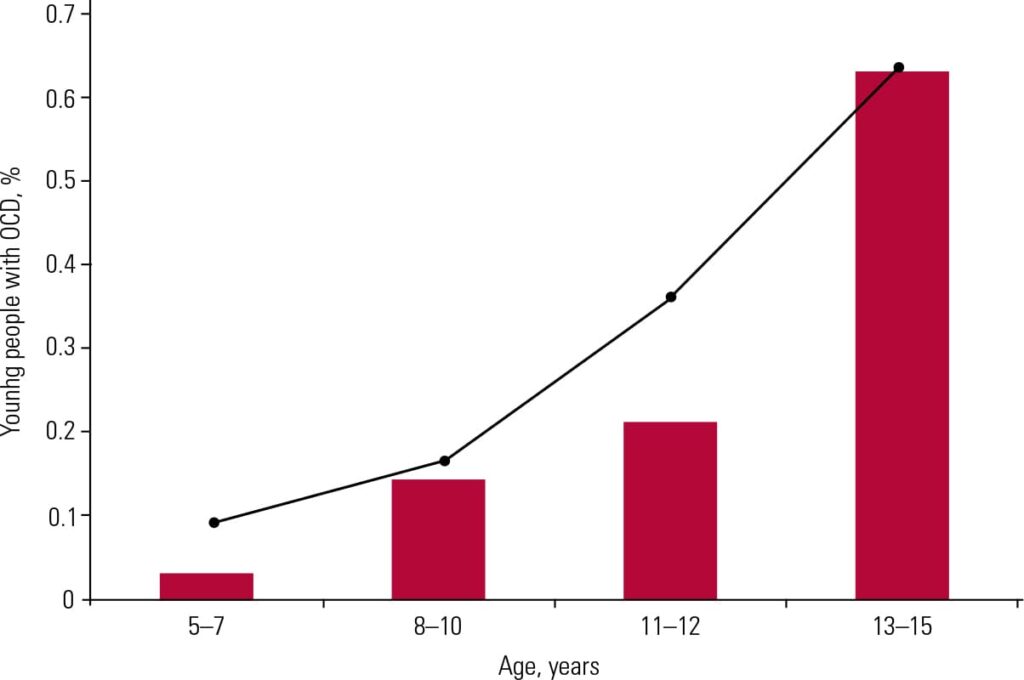OCD Test
3 Min Free OCD Test
Who Can Benefit From This OCD Test?
The OCD (Obsessive-Compulsive Disorder) test can benefit anyone who suspects they may be experiencing symptoms of OCD. OCD is a mental health condition characterized by obsessions (persistent, unwanted thoughts or impulses) and compulsions (repetitive behaviors or mental acts that individuals feel compelled to perform to alleviate anxiety). The symptoms of OCD can be distressing and impact an individual’s daily life, relationships, and functioning.
This assessment may be particularly useful for individuals who have persistent, unwanted thoughts or impulses, engage in repetitive behaviors, or have difficulty controlling their thoughts or behaviors. The assessment can help individuals better understand their symptoms and determine whether they may benefit from seeking support from a mental health professional.

OCD Test Accuracy

The accuracy of an OCD test can depend on several factors, including the honesty and accuracy of the responses provided by the user, and the individual’s current state of mental health. It’s essential to note that an OCD test is not a substitute for a formal diagnosis by a licensed mental health professional and it is best used as a screening tool to identify potential symptoms and risk factors for OCD.
However, many OCD tests have been designed and validated by mental health professionals and researchers to ensure their accuracy and reliability. These tests typically involve a set of standardized questions and scoring procedures to provide an objective measure of OCD symptoms. It’s essential to remember that while a test can provide useful information, it should not be used in isolation to diagnose or treat OCD.
Types of OCD Test
Yale-Brown Obsessive-Compulsive Scale (Y-BOCS):
This is a clinician-administered questionnaire that assesses the severity of OCD symptoms. The Y-BOCS consists of 10 items and is widely used in clinical settings.
Padua Inventory-Revised (PI-R):
This is a self-report questionnaire that assesses the severity of OCD symptoms. The PI-R consists of 60 items and is commonly used in research and clinical settings.
Maudsley Obsessive-Compulsive Inventory (MOCI):
This is a self-report questionnaire that assesses the presence and severity of OCD symptoms. The MOCI consists of 30 items and is commonly used in research and clinical settings.
Obsessive-Compulsive Inventory (OCI):
This is a self-report questionnaire that assesses the presence and severity of OCD symptoms. The OCI consists of 18 items and is commonly used in research and clinical settings.
Structured Clinical Interview for DSM-5 (SCID):
This is a diagnostic interview that assesses for the presence of panic disorder and other mental health conditions. The SCID involves a structured or semi-structured interview with a mental health professional.
The Saving Inventory-Revised (SI-R):
This is a self-report questionnaire that assesses hoarding symptoms, which can be a subtype of OCD. The SI-R consists of 23 items and is commonly used in research and clinical settings.
Treating OCD
- Cognitive Behavioral Therapy (CBT): This is a type of talk therapy that focuses on changing negative thought patterns and behaviors that contribute to OCD. CBT may involve exposure therapy, where individuals gradually face feared situations to desensitize them to triggers.
- Medications: Antidepressants and anti-anxiety medications may be prescribed to treat symptoms of OCD, such as anxiety and obsessions.
- Deep Brain Stimulation (DBS): This is a surgical procedure that involves implanting electrodes in the brain to regulate brain activity and reduce OCD symptoms. DBS is a relatively new treatment and is typically used in severe cases of OCD that do not respond to other treatments.
- Relaxation Techniques: Engaging in relaxation techniques, such as deep breathing, meditation, and progressive muscle relaxation, can help individuals manage symptoms of OCD and reduce stress levels.
- Lifestyle Changes: Making lifestyle changes, such as reducing caffeine intake, regular exercise, and improving sleep habits, can help individuals manage symptoms of OCD and improve overall well-being.
- Support Groups: Joining a support group can provide individuals with social support and a sense of community, which can help reduce feelings of isolation and improve mood.

